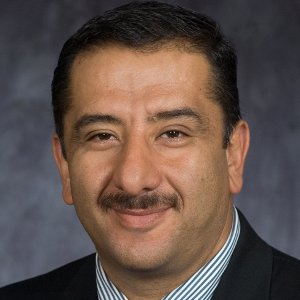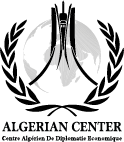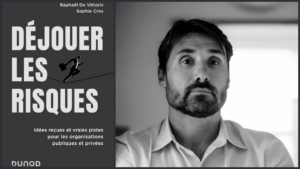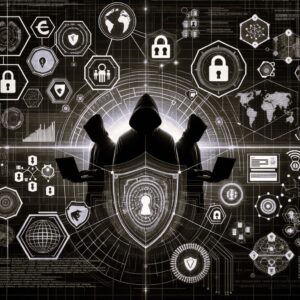International negociation : Religion-based peacebuilding – Interview with Dr. Abu-Nimer, Director of Peacebuilding and Development Institute at American University – Washington DC

Picutre of website of American University
Interview publiée le 17 septembre 2020
Centre Algérien de Diplomatie Économique : Good Afternoon Dr. Abu-Nimer, could you please introduce yourself to our readers?
Dr. Abu-Nimer: My name is Mohammed Abu-Nimer, I’m a professor of peace and conflict resolution and I teach at American University since 1997. I have been working in peace and conflict resolution for over three decades. I work in a conflict area majority where identity, religion, culture, race, and ethnicity, are being manipulated to justify violence against others and exclusion. My work is to construct the space for dialogue where people from two different sides or more can explore, know, and learn about each other in a deeper and more meaningful way. I have worked in Sri Lanka, the Philippines, in all the Arab countries in the Middle East as well in Chad, Niger, Burkina Faso, Pakistan, Ireland, the United States., and Myanmar. In all these countries, I have worked for at least two or three years. My work consists in connecting theory and practice: I teach peace and conflict resolution and I try to practice that on the ground.
CADE : Before we get started, how would you generally describe the peace level in the world and how do you predict this will vary in the future?
Dr. Abu-Nimer : In my view, if you want to talk about global peace these days, there are amazing examples of communities, societies and groups who live in stability and prosperity, with a very good level of education, income, safety, and security. Such affluent communities exist all around the world. They are sheltered from many disasters occurring globally, except COVID-19, which clearly broke all these boundaries. So, one cannot say that there is no peace in the world. I think it depends from which window or gate you are gazing at the world. At the same time, we witness a huge discrepancy between those who have and those who have not, and that socio-economic gap between north and south is incredible in terms of income, resources and exploitation of resources. Comparing the average income in Sierra Leone with Sweden, Kuwait or Japan gives an indication of the level of structural violence that exists in the world.
Weaponization and militarization is also another huge factor that produces instability. Economic and military factors play in, as well as the ecology: we are witnessing ongoing floods in Sudan and disasters around the globe due to the environmental unbalance and lack of awareness of the ecology. On the political level, we are seeing global trends over the United States, Latin America, Africa or in Middle Eastern countries and certain countries in Africa, where the space for the protection of human rights and for civil society operation is shrinking. We also see a narrative of polarization and less multilateral cooperation. Thus, there are always mixed elements to consider when assessing the peace index of the world. Depending on where one stands and what one is looking at, I think, the view of peace will be affected, but definitely we have a dangerous pattern that has evolved in the last two or three decades towards more negative and destructive patterns of behaviour.
CADE : Secular peacebuilders claim their ways can be more effective in attributing peacebuilding. Do you think that religion frames it or can be inconvenient if it’s brought in certain conflicts?
Dr. Abu-Nimer : That’s really an argument that exists in many diplomatic and political circles and I think my work and other people’s work these days is really to convince policymakers, especially in the Northern hemisphere in Europe, in the United States and in Asia. According to the Pew survey, 84% of the world population has a spiritual or religious belonging. How can we ignore their identity and how could we say that their religious identity is a source of violence or conflict? Why would we give the remaining 15% secular population around the world the power to determine that religion is destructive, when we know that politicians have manipulated and utilized religion and religious identity to justify violence? I don’t agree with this approach, and in fact I think this is one of the problems around the world Religious leaders and institution are marginalized, ignored and not engaged enough to help in solving global challenges.
CADE : Interreligious Dialogue is what you have focused on in your book, Making peace with faith and most of your interviews. Do you believe that it has indeed created peace more than conflict? Could you expand on some examples?
Dr. Abu-Nimer : As I said, there are millions of people around the world, if not billions. of who celebrate their faith and who live their faith peacefully, whether they are Christian, Muslim Jews, Hindus, Buddhists or indigenous people with indigenous traditional religions. There are millions of examples, which one can see around the neighbourhoods, in local towns or cities, so we don’t need to take an example of one leader who’s using religion to justify violence and generalize. I can give you the classic examples, as I have worked in countries of conflict around the world. In Mindanao, I met many Catholics and Muslims who work together towards peace, who fight against the military solutions for their conflict, who opposed and protested against the discrimination of Muslims In Mindanao. In Egypt, during the last revolution, there were Muslims and Christian working together to protect each other during the revolution. In so many different places around the world, one can find religious leaders and religious communities committed to helping in the relief and disaster. I work with a Hindu leader in Birmingham, UK, who is committed to feeding the hungry and the homeless: every week he distributes thousands of free meals to people. There are, as I said, many people around the world who are role models and exemplars of making peace through their faith.
CADE : What are the challenges that have most marked you and affected your career as a peacebuilder?
Dr. Abu-Nimer : Like many other people who work in the field of peace and peacebuilding, the shifting context is the biggest challenge we face. Often, we work in one place for many years, building relationships at the community level and trying to get to the policymakers until there are some major geopolitical developments that come about and shift the entire dynamics. We witness people we work with, who cannot sustain that relationship, who lose their life. For example, a program was being developed for Islamic peace in Indonesia, and then a tsunami came. When such disasters happen, they wipe away the entire region, the entire area; in other cases, some countries or political leaders launch a war. Recently we were working In Lebanon on Muslim and Christian interfaith relations and the explosion in Beirut happened, many people were killed, injured and 300,000 people were left without shelter. Tragedies such as this delay and in many ways really affect the impact of our work. Another challenge I see evolving and emerging in the last decades has to do with how much interest we have in relationships with people. In the past three decades, I have seen people move from an in-depth interest in the person and in the issue into a culture of instant gratification, where you have very little attention span and you want to get the story of pain and injury of the other side in snapshots. That doesn’t work in peacebuilding and we’re struggling with that right now. How can we best build the relationship in depth vertically, rather than rely on very technical and official modes of interaction that do not give people the chance to really know each other from within? That’s a major challenge that I have faced, which also has to do with technology. These are the factors that have affected my work. In many ways, Policymakers are moving more towards a political and social polarization and the language of justice, of human rights and of peace have become in many ways a curse. In particular right-wing politicians use human rights and diversity narrative as an insult and instead they offer a discourse that is aimed to feed the animals in us rather than to feed the human.
CADE : Since we are witnessing a global pandemic, do you think such a crisis needs only scientists or both, scientists and peacebuilders?
Dr. Abu-Nimer : Today a Tweet was published as a result of a webinar I did this week with Arab women forum for dialogue. I said there that neither policymaker nor religious leaders can face or confront the pandemic alone, and to that I can also add science. Science, religion, or politics, none of these can face the pandemic alone. It is the human connectedness and interdependency that we are witnessing what we need in dealing with this pandemic. So the scientists, diplomats, religious people, and all humans need to be putting together their hands and collaborate not only in finding the vaccine; because once you find the vaccine there are still economic issues, there still issues of disparities and asymmetric relations, the gap between North and South, there is a role for everyone in fighting and confronting this pandemic.
CADE : How do you see the evolution of the Libyan conflict since the death of Al-Kadafi knowing a lot of extra-regional role players have been involved yet we don’t seem to see a clear sign of resolution?
Dr. Abu-Nimer : It’s very sad to look at the legacy of Al-Qadafi regime, and hear some people saying the Libyan people maybe were better off with that type of oppression because it provided some sort of order. At the same time, we know that the Libyan situation today is a result of the Qadafi regime because of the lack of functioning economic, political infrastructures that would allow people to move into the next phase of their socio-economic development. After 42 years of ruling, Qadafi left people with no political party, with a tribal division, with very little education systemic infrastructure and with no solid socio-cultural practices for tolerance of each other’s differences. And in many ways, he left the country open to the hawks and to the regional players, countries like Russia, Iran, or Turkey or others who, basically saw an economic, political-strategic interest and they pursued it.
One can blame the regional powers, but I don’t think this is the full story. We should be looking also internally and ask ourselves, what is the role of the Libyan political local leadership in preventing this sad evolution of the defeat of the Al-Qadafi regime. The Italians, Turkish, and Russians and anyone who’s playing in the field of Libya cannot play such a game if there is no internal cooperation and collaboration and if there is no receptive field for it. And I think that’s the sad story: the Libyans see their country and their people bleeding on a daily basis while their sovereignty has been really compromised. In many ways, this is a trace back to the colonial time when all these territories in North Africa were arbitrary divided. Now, 100, 80 or 70 years later, people who live in this territory are paying the price for these structural arrangements that were done by the colonial powers during that time. So it’s historical, there are internal and external factors at stake, but at the end of the day, it’s really tragic to see para militia from Chad, Niger, Russia, ISIS Syria, Afghanistan and other nationalities being paid money to fight on the soil of Libya. It is indeed painful reality.
We should hope for a future Libyan society in which local people who really care and who are the ones paying the price of all this destruction, will have a chance to rule themselves and get rid of this nightmare.
Entretien réalisé par l’équipe du Centre Algérien de Diplomatie Economique.



